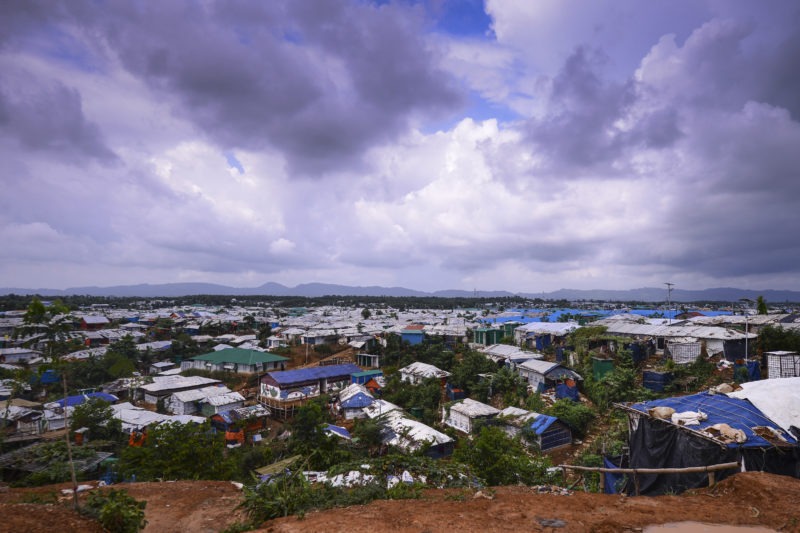Almost 200 Rohingya caught fleeing Bangladeshi camps by boat
Life is becoming increasingly difficult in the sprawling camps that are home to nearly one million Rohingya (MUNIR UZ ZAMAN)
<p>Yangon (AFP) – Almost 200 Rohingya Muslims sailed more than 1,500 kilometres to escape Bangladesh refugee camps only to be arrested by Myanmar’s navy, the country’s military said Tuesday.</p><p>The boat seizure came just days after Myanmar’s leader and Nobel peace laureate Aung San Suu Kyi addressed the UN’s top court to deny allegations of a genocidal campaign against the ethnic minority.</p><p>With the monsoon over and seas relatively calm, increasing numbers of Rohingya Muslims are once again risking their lives attempting to reach Malaysia or Indonesia.</p><p>Bangladeshi authorities say they are stopping one or two boats a week leaving the country’s shores, and many more are thought to evade patrols.</p><p>Few make it as far south as Kawthaung, Myanmar’s southern-most tip, where on Sunday the country’s navy picked up the 173-strong Rohingya group, including 69 women and 22 children, a military spokesman told AFP.</p><p>"We will hand them over to immigration authorities and police to take action," said Zaw Min Tun, adding they had come from camps in Bangladesh and were heading to Malaysia.</p><p>Seven boatmen were also arrested in the vessel’s seizure some 135 miles (217km) off Myanmar’s coast, he said.</p><p>Life is becoming increasingly difficult in the sprawling camps that are home to nearly one million Rohingya, around 750,000 of whom fled a crackdown by Myanmar’s military in 2017.</p><p>Officially they are forbidden to leave the settlements, but the camps’ vast size means they are difficult to police.</p><p>Bangladesh has stoked fear among the Rohingya by erecting barbed-wire fences around the sites and installing checkpoints on nearby roads.</p><p>Rights groups condemn the move, saying it transforms the camps into a "big prison".</p><p>An internet blackout, the confiscation of SIM cards and phones, and a clampdown on illegal documentation papers are also making refugees’ lives even less bearable.</p><p>Frustration is also growing in Bangladesh about hosting the refugees, especially after failed attempts to repatriate them.</p><p>The Rohingya refuse to return to Myanmar until their security and rights are guaranteed.</p><p>Last week Suu Kyi rejected allegations of genocide against Myanmar at the International Court of Justice (ICJ), despite admitting the army may have used excessive force against the Rohingya.</p><p></p>
Disclaimer: Validity of the above story is for 7 Days from original date of publishing. Source: AFP.


